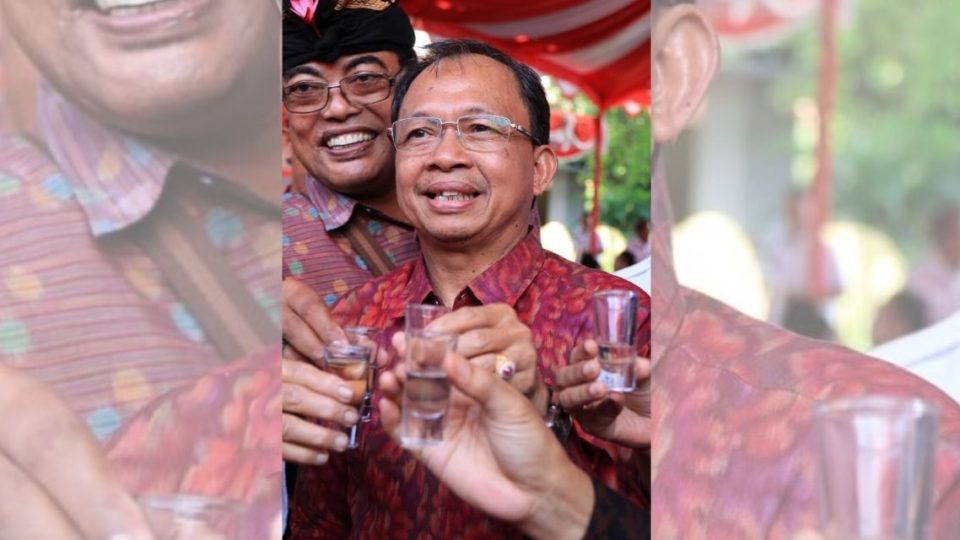Arak, Bali’s own traditional liquor, will soon be more of a commercial option across the island, as Bali Governor Wayan Koster has issued a gubernatorial regulation on production and marketing of the beverage.
It’s no secret that tourists visiting the Island of the Gods love to get their drink on, and alcoholic beverages are never quite in short supply. That, however, hasn’t exactly included the traditional choices of liquor, and the local government has been pushing for Balinese arak to gain more prominence in recent years. With the new regulation, Bali officially steps forward toward preserving and promoting the drinks.
“I hope, now that it’s officially regulated, that Balinese fermented drinks will be a new powerhouse for our economy, which is based on local people and local wisdom,” Koster said on Wednesday, as quoted by state news agency Antara.
“[Balinese liquor] needs to be protected, preserved, developed and utilized to further support sustainable economy based on our local culture,” he added.
Under the regulation, producers of traditional Balinese fermented and distilled drinks – which include of arak, tuak (a sweet drink from coconut palm flower) and brem (a drink made of rice wine) – will have to acquire licenses and pass food safety tests from the Indonesian Food and Drug Monitoring Agency (BPOM), in order to ensure that they meet quality and hygiene standards.
“This way, our traditional drinks can be served in hotels, displayed at the airport, and even served during dinner receptions at the governor’s official residence,” Koster said.
It is prohibited for Balinese arak, tuak and brem to be sold on the streets, lodgings, camping sites, and other areas where alcoholic beverages are not permitted, with Koster also emphasizing that the drinks are not to be sold to children.
Furthermore, Koster stressed that local producers must follow the rules and acquire the necessary permits, especially noting that the regulation was issued with the collective future of the island in mind.
“This should be our collective effort to build a healthy economy. Don’t let this become an object hunted down by law enforcement officers,” he said.
The regulation serves as a relief for traditional liquor producers and sellers, who in the past had to deal with authorities for doing either or both.
“Now arak producers in Bali are protected by the law,” Putu Pratama, a tour guide from Gianyar regency, told CNN Indonesia.
“Both producers or sellers of arak don’t have to worry anymore. They can focus on developing. This is good because Bali is a tourist destination,” he added.




